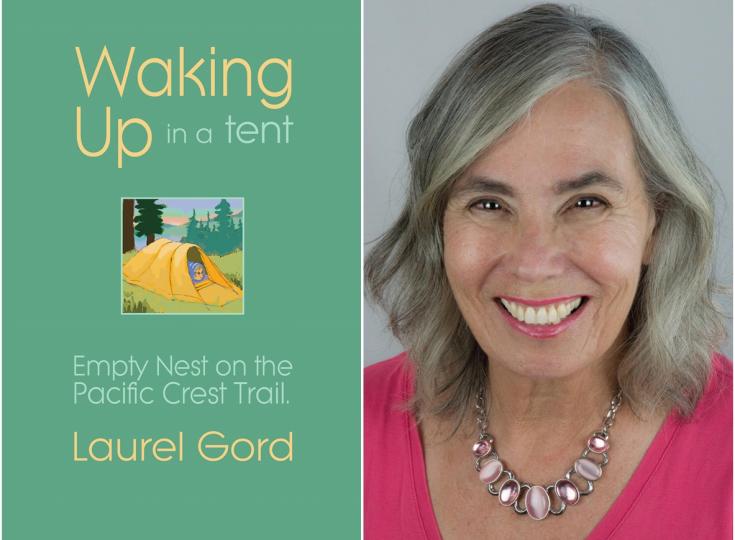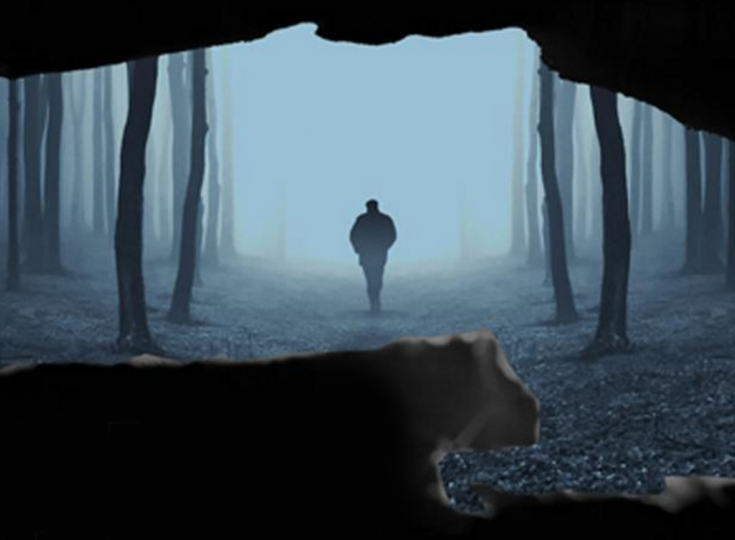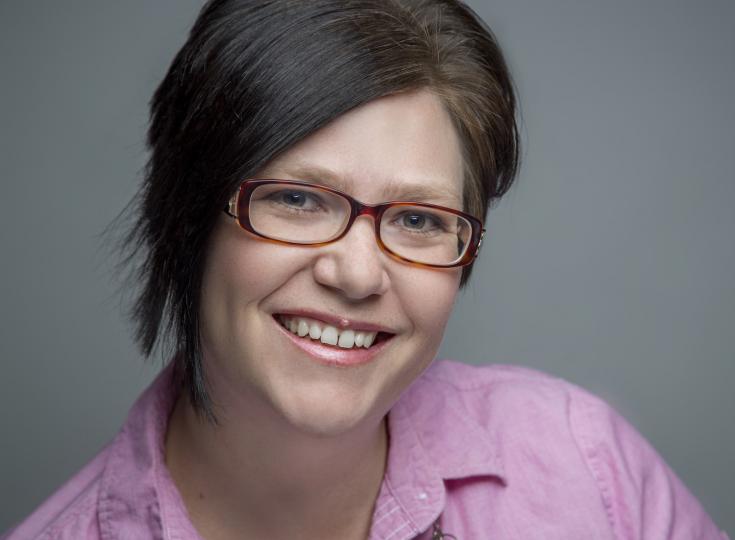Laurel Gord - Taking On the Pacific Trail

Laurel Gord wrote about a day of her trip on the Pacific Crest Trail as a writing exercise - it ended up turning into a book. A book that revealed so much more about her inner thoughts and the love story between her and her husband than she initially intended. As our author of the day, Gord talks about her book, Waking Up in a Tent and about the personal growth she experienced during the trip.
Please give us a short introduction to what Waking Up in a Tent is all about.
As I wrote it, I thought it was mostly about my personal growth as I tackled the challenge of hiking the Pacific Crest Trail. I see from reader comments that what people respond to most is the love story between me and my husband.
Have you always wanted to write a book? Why did you choose to do so now?
I’ve always loved to read and from the time I was very young I thought being a writer was the most amazing thing a person could be, but I’m a somewhat critical reader and I lacked confidence in my ability to write anything I could feel good about. Then I spent a month overcoming challenges, both inner and outer, as I backpacked! I had joined a writing class and when I got back I kept thinking about a couple we met at Tuolumne Meadows, especially the man, Independence Day, who took us under his wing. I’d never met anyone like him and I wrote about the night and day at Tuolumne Meadows for the class. The response was that people wanted to hear more about the hike, so I started writing more. Before I realized it, I was writing a book. I was lucky enough to find a writing partner who offered invaluable editorial advice and moral support and that partnership was crucial to my process.
What made you and your husband decide to take on the Pacific Crest Trail?
In short: Cheryl Strayed’s Wild. John and I had done a few one or two night backpack trips, but I really wasn’t even aware of the PCT before reading Wild.
What has this trip done for your relationship with your husband?
It’s amazing to me that a 35 year marriage can continue to grow. We each grew as individuals and saw sides to the other that don’t normally emerge. I’ve loved seeing the nature-loving, poetic side to my very practical husband. He says he was impressed with the way I struggled through altitude sickness and acrophobia. We found more shared interests and continued to hike and backpack.
What do you hope that your readers will take away from this book?
I’ve found that the more aware I become of whatever crazy thoughts I’m harboring the better my life becomes. I wrote inner dialogue in which I become aware of the way I’m undermining myself with my self-talk and change it. I also wrote about becoming enraged with my husband for something that wasn’t his fault, acknowledging my rage to myself, then holding back from starting a pointless fight. I hope my readers will be inspired to pay more attention to the way they talk to themselves on whatever life journey they’re on. I hope I also communicated my appreciation for the beauty and healing power of nature.
Your book contains a lot of humor. Why did you take this approach?
I think that trying to be humorous is risky since people either respond to your humor or they don’t. At some point though, I decided that as long as I was going to the trouble to write a book I would be as honest as I could be. I was inspired by Mary Karr, a memoirist I greatly admire. Since humor is tragedy plus time (according to Mark Twain) I found that I couldn’t look back on all the inner turmoil I caused myself without laughing and that laughter made it onto the page.
Besides writing, what other secret skills do you have?
This isn’t exactly a secret, but I like to cook and most people seem to enjoy the fruits of that endeavor.
This is your first published book. What has the experience been like, so far?
Writing this book helped me to integrate and make sense of so many of the experiences I’d had on the trip. I also learned a lot about how to structure a narrative and write dynamic sentences. Now that it’s out in the world I’m learning how to process negative reviews. I remind myself that when I made the decision to write honestly about my difficulties with my urinary tract and my inner struggles that some people would be turned off by that.
Talk to us a bit about your writing habits. Do you write early in the morning, or through the night? Pen or laptop?
I’m naturally a very early riser and love to write first thing in the morning, sitting at the computer with a cup of coffee.
What are you working on right now?
I’ve run into a stumbling block with my writing. Just as I was self-publishing Waking Up in a Tent, I developed disabling symptoms from Myasthenia Gravis, an autoimmune disorder which I’d had in a milder form for a number of years. My arms became so weak that I’ve been physically unable to write and it’s taken me a while to get comfortable enough with voice recognition to do more with it then answer emails. I’m also needing to rest much more than usual and to otherwise focus on treatment and recovery. I’m happy to say that I feel very supported in so many ways and am feeling very optimistic. This has been a kind of spiritual journey and I plan to at least start blogging about it. I also love to write poetry and continue to do that.
Where can our readers discover more of your work or interact with you?
I plan to create a website as soon as my Myasthenia Gravis symptoms have abated somewhat. In the meantime I have an author page on Goodreads and a Facebook page called Waking Up in a Tent. I’d love to hear from readers in either of those places and am interested to hear about their journeys.










